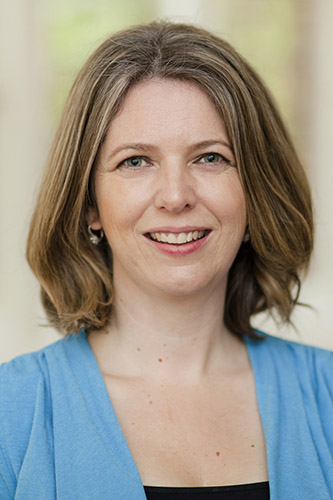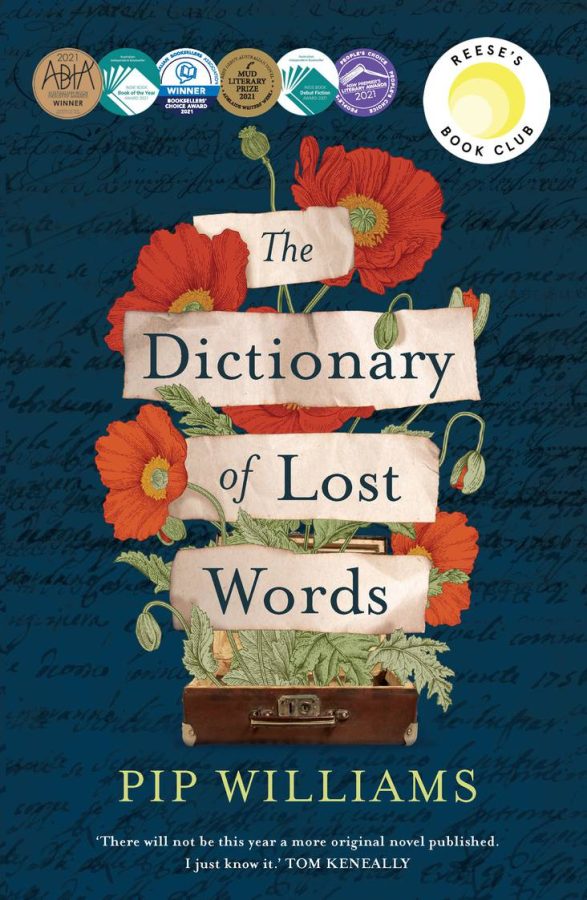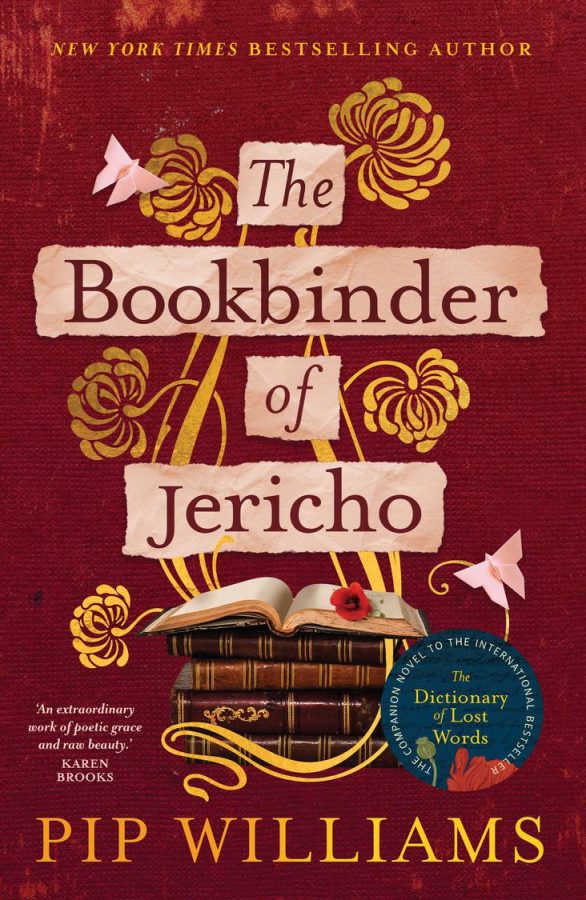The SRB is delighted to be hosting a seminar devoted to women readers and writers at the Writing and Society Research Centre on Friday 22 March 2019. Beth Driscoll will be elaborating on the ideas presented in this essay at the seminar. She’ll be joined by Sara Knox, Frances An and Julieanne Lamond in a discussion chaired by SRB editor Catriona Menzies-Pike and WSRC Deputy Director Dr Anne Jamison.
The Frankfurt Book Fair is the largest event in global publishing, where publishers and agents meet to trade international rights and announce massive advances for the latest buzzworthy titles. In 2017, when I first attended, there were 7300 exhibitors from over 100 countries. The gender dynamics of the publishing industry are on display here; so, too, is the commerce of book culture. Hall after hall, row after row, stand after stand promote books of all kinds: from cookbooks, to children’s activity books, to the Obamas’ respective memoirs. Beholding all this, it’s natural to ask: what would the Frankfurt School think?
The Frankfurt School was active in Germany in the mid-twentieth century, and its key theorists include Theodor Adorno, Max Horkheimer, Walter Benjamin, and Jurgen Habermas (note: no women). They are known for their critiques of capitalism. In Dialectic of Enlightenment (1944), Horkheimer and Adorno argue that the ‘culture industry’ is a form of mass deception, creating a ‘circle of manipulation and retroactive need.’ It is probably fair to say that they are not natural allies of the book fair. To truly test this idea, my research partner Professor Claire Squires and I created a tote bag. Tote bags are the cultural accessory of our times — throwaway and consumerist (we made ours on Zazzle), while displaying cultural capital (confess: do you own a New Yorker tote bag?). Our tote bag is based on the cheapest available stock, upon which was printed our custom logo.

Our nifty layout and font were conversation starters that signaled a bet each way. On the one hand, FFS to the massive oversupply of books. On the other, FFS to those grumpy theorists themselves. Because, like so many others before and since, they tend to disparage mass culture by associating it with women.
In a 1986 essay that bears rereading, Andreas Huyssen observes that discourse of the nineteenth century ‘consistently and obsessively genders mass culture and the masses as feminine, while high culture, whether traditional or modern, clearly remains the privileged realm of male activities.’ The Frankfurt School, in the twentieth century, focused on the professionalised mediation of culture rather than mass culture as such, yet Huyssen notes that
the older mode of thinking surfaces time and again in the language, if not in the argument. Thus Adorno and Horkheimer argue that mass culture ‘cannot renounce the threat of castration,’ and they feminize it explicitly, as the evil queen of the fairy tale when they claim that ‘mass culture, in her mirror, is always the most beautiful in the land’… Examples such as these show that the inscription of the feminine on the notion of mass culture, which seems to have its primary place in the late nineteenth century, did not relinquish its hold.
Huyssen concludes his essay by arguing that, thanks to postmodernism, the rhetorical feminisation of mass culture has lost its persuasive power. But from the vantage point of 2019, I’m not convinced. The old patterns of thinking are still in evidence.
A gendered dichotomy between art (which is assumed to have the ethical capacity to produce social change) and entertainment (assumed to be conservative) continues to affect judgements about what is worth publishing and reading. The dichotomy drives attempts to create space for women in high literary culture; one corollary is that eminent female literary writers may distance themselves from mass cultural forms using gendered language. For example, in a recent piece for this publication, Charlotte Wood’s benchmark for banality (allowances for rhetorical overstatement notwithstanding) is ‘pink-jacketed goo from the shelf labelled Heartwarming / Relatable.’ Casting commercial fiction as banally female is one problem, but there are more: within each genre, segment and market, women struggle for legitimation. Across all its sectors, book culture remains a game that is stacked against women.
Gender inequity is countered by sites of activism across what Lisa Fletcher, Kim Wilkins and I call ‘genre worlds’. Each genre is a community of writers, readers and industry professionals, characterised by internal debates about the need for change. Recognising and supporting activism in all genres, by all kinds of participants, may be the key to shifting stubborn, obstructive structures of thought.
Prizes are perhaps the most visible kind of activism. The high-profile Stella Prize, for example, has an explicit mission to celebrate Australian women’s writing and champion cultural change; it is a targeted intervention that also includes the Stella Count (modelled on the VIDA count, assessing how many books by women are reviewed) and education programs. It began in 2011, when, ‘at an International Women’s Day event in Melbourne, the panel of female authors, publishers and literary journalists noted that over the entirety of its 55-year run, only 10 women had been awarded the Miles Franklin, widely considered to be Australia’s most prestigious literary award.’ The Women’s Prize for Fiction in the UK (formerly the Bailey’s, formerly the Orange) was similarly launched after several all-male Booker Prize shortlists; this year, for the first time, it included a non-binary author on its longlist, demonstrating ongoing participation in discussions about marginalised genders.
The Stella Prize awards literary fiction and non-fiction (somewhat controversially, not poetry or plays, and in practice, not romance fiction or commercial fiction). But the Stella is not the only prize in town. Similar impulses have seen the creation of prizes in other genres, which support, publicise and increase the prestige of women writers.
Sisters in Crime, an organisation launched in Australia in 1991 at the Feminist Book Festival, runs two prizes for female crime writers: the Scarlet Stiletto Awards for short stories, and the Davitt Awards for books. Co-founder Carmel Shute described the Scarlet Stilettos, which launched in 1994, to Angela Savage, as ‘originating at a meeting over a few glasses of wine about the difficulties facing female aspiring crime writers’: ‘The Sisters in Crime saw the Scarlet Stiletto Awards as a way of cutting through the discrimination.’The Davitts were launched in 2001 — like the Stella and the Women’s Prize, in response to years of all-male shortlists by an existing award, in this case the Ned Kelly Awards for Australian crime writing. The Davitt Awards have no prize money, cost nothing to enter, and are run thanks to the passion of this genre-based group. They have undeniable impact. In 2017, debut author Emma Viskic won two Davitt awards and then a Ned Kelly Award for Resurrection Bay, while in 2018, Sulari Gentill was shortlisted for a Davitt and went on to win a Ned Kelly for Crossing the Lines.
Prizes can be activist in terms of the authors they recognise; they can also be activist in the kinds of writing they award. The Staunch Prize is a new prize for ‘a thriller in which no woman is beaten, stalked, sexually exploited, raped or murdered.’ It’s a controversial award, but as someone who has read a lot of crime fiction over the past few years and grown sick to my stomach at the endless attacks on women they depict, I am grateful for the reading list (including last year’s inaugural winner, Jock Serong). In Australia, we also have the Barbara Jefferis Award for ‘the best novel written by an Australian author that depicts women and girls in a positive way or otherwise empowers the status of women and girls in society.’
These awards contrast with others, more humorous, that point to undesirable aspects of novels: such as the Bad Sex in Fiction Award established in 1993, run by British publication The Literary Review, and always widely covered in the media. One of my favourite awards is the Diagram Award for Oddest Book Title. This award was ‘originally organised to provide entertainment during the 1978 Frankfurt Book Fair’, proposed by (bored? mischievous?) staff at the stand for the Diagram Logistics Group and run by industry magazine The Bookseller. Past winners include How to Avoid Huge Ships (1992). If it seems like I’ve wandered from the point here, let me assure you: the point is that prizes are social actors, designed to produce reactions, and are relatively straightforward to set up (although less easy to fund). Prizes can be activist interventions that work within and across different cultural sectors. Controversy over criteria and decisions is always welcome, for it points to work that needs to be done. To take action, find, follow and/or start a prize.
Prizes are one way to highlight gender inequity; speeches at festivals, events and conventions are another. In 2018, hundred of romance writers and publishers gathered at the Sofitel Wentworth in Sydney for the Romance Writers of Australia Convention. Most writers and readers of romance are women, and romance fiction is a vibrant genre world in which debates about women’s pleasure, relationships, careers and finances are ever-active. In 2018, one of the RWA keynote presentations was given by then managing editor of Harlequin’s Escape imprint, Kate Cuthbert. Cuthbert’s speech, reproduced in industry magazine Books + Publishing and discussed by Jane Sullivan in The Age, was a moment when this genre world’s internal debates became visible to literary culture more broadly.
In her speech, Cuthbert addressed the responsibilities of romance fiction writers and publishers in the #metoo era — as Cuthbert exhorted her audience,
If we want to call ourselves a feminist genre, if we want to hold ourselves up as an example of women being centred, of representing the female gaze, of creating women heroes who not only survive but thrive, then we have to lead.
For Cuthbert, this means ‘breaking up’ with some familiar romance fiction tropes, such as the coercion of women: ‘Many of the behaviours that are now being called out – sexual innuendo, workplace advances, stolen kisses because the kisser couldn’t resist – feel in many ways like an old friend,’ Cuthbert said. ‘They exist in the romance bubble … and they readily tap into that shared emotional history over and over again in a way that feels familiar and safe.’ Cuthbert’s compassionate acknowledgement of readers’ and writers’ attachment to established genre norms sits alongside her call for evolution, for renewed attention to ‘recognising the heroine’s bodily autonomy, her right to decide what happens to it at every point’:
We need to divorce the idea of sexy from the idea of surprise. Your heroine can be pursued, but she must not be prey. It means empowering your heroine’s choices—write that contraception scene. This is the genre where it should become so ingrained that women engage only in safe sex—protecting themselves and their partners—that it becomes cliche.
Cuthbert’s speech is a call from within the heart of the romance genre to advance it in directions that are empowering for women: as characters, authors, and readers.
Romance fiction is, largely, produced by women and for women, but speculative fiction is more like crime: a noticeable gender split runs through the genre. Since it began 80 years ago, Worldcon, the World Science Fiction Convention, has featured 193 guests of honour — valued authors, artists and fans. 154 (80 per cent) of these guests of honour have been men. The gender balance, though, looks very different in recent years. In the first 60 years of Worldcon, only 14 women were guests of honour; in contrast, 19 women were guests of honour between 2010 and 2019. More than half the total of 39 female guests of honour were invited to Worldcon in the last decade of Worldcon. This is evidence of a sharpened focus on gender inequity and rapid action within this organisation, fandom and genre.
Such change doesn’t happen smoothly. About the same time that the Worldcon guest of honour list started to show the increased prominence of women in speculative fiction, the Sad Puppies/Rabid Puppies controversy kicked off. It was 2013, and right-wing fantasy author Larry Correia wanted his novel shortlisted for the prestigious Hugo Awards. Nominees and winners of these awards are voted on by members of Worldcon (and anyone can become a supporting member); Correia’s blog post asking for votes was accompanied by a picture of a sad puppy. From here, Sad Puppies expanded into a campaign against what Correia and his allies saw as the politicization of speculative fiction; in a 2014 blog post, Correia wrote ‘Message or identity politics has become far more important than entertainment or quality.’ The Sad Puppies campaigned online for slates of novels they wanted shortlisted in the Hugo Awards in 2014 and in 2015; also in 2015, Vox Day began the more extreme Rabid Puppies. As Todd VanDerWeff put it in a recap article for vox.com, ‘To call [Day] a controversial figure is putting it mildly. He has, at various points, suggested women should not vote, called [author N.K.] Jemisin half-savage, and been hugely involved in other reactionary movements, including Gamergate.’
The Sad Puppies and Rabid Puppies were successful at getting their nominees onto the Hugo shortlists, but not at securing winners — Worldcon members, instead, voted to confer ‘No Award’ in categories where the shortlist was comprised entirely of Sad Puppies/Rabid Puppies nominees. And in 2016, just after Worldcon’s board changed the rules of the Hugo Awards to inhibit block-voting, N.K. Jemisin became the first black author to win a Hugo Award, for her novel The Fifth Season, the first in her Broken Earth series. Jemisin went on to win again in 2017 and 2018, becoming the first ever author to win three back-to-back Hugo Awards for each volume in a trilogy. The Hugo Awards controversy, then, shows fierce debates about ethics within a genre community: it shows progressive action, followed by conservative reaction, followed by progressive reaction. The changes happening within speculative fiction include fan involvement and online debate — readers, in this genre world, are not only participants but often activists.
All these different kinds of activism involve risk and need support. We can start by reading widely — books, literary journalism, websites and social media — to stay attuned and informed of the diverse struggles facing women and marginalized genders in book culture. And then, I suggest, we should act: by writing, by purchasing, by supporting, by attending, by tweeting. And, perhaps, by making and carrying tote bags. I’m thinking of a new one, using one of the eleven slogans that, inspired by the situationists, Claire Squires and I have chosen in order to advance book culture. It should work for all participants and all literary tastes, but by all means tweak it if necessary. Take Bookish Action.
Works Cited
Fletcher, Lisa, Beth Driscoll, and Kim Wilkins. 2018. “Genre Worlds and Popular Fiction: The Case of Twenty-First-Century Australian Romance.” Journal of Popular Culture 51(4): 997-1015.
Horkheimer, Max, and Theodor W. Adorno. 1972. Dialectic of Enlightenment. New York: Herder and Herder.
Huyssen, Andreas. 1986. After the Great Divide: Modernism, Mass Culture, Postmodernism. Bloomington: Indiana University Press.


